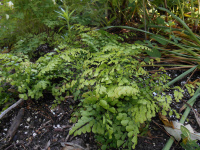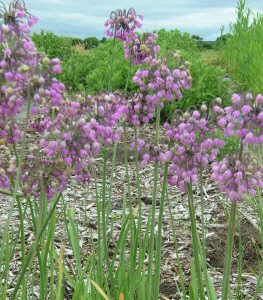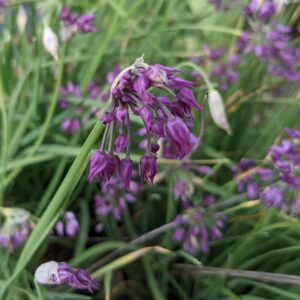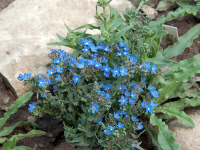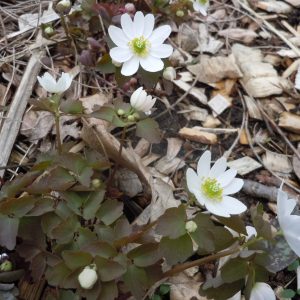Alpine, Rock, Miniature, Bonsai and Railroad Gardens
Showing 1–8 of 85 results
-
Adiantum venustum Himalayan maidenhair fern Z 5-8
Black stems hold triangular, delicate, lacy fronds of tiny leaflets
OUT OF STOCK
Black stems hold triangular, delicate, lacy fronds of tiny leaflets. Favorite short fern.
Size: 6" x 12", slow spreader
Care: part or light shade in moist well-drained soil but tolerates any soil
Native: China and Himalayan Mountains
Awards: Great Plant Pick from Elisabeth Cary Miller Botanic Garden & Royal Horticultural Society Award of Garden MeritAdiantum is from Greek adiantos, “unwettable” because its fronds repel water. Venustum means attractive in Latin. (We think it should be “venustumest” for most attractive.) Collected for gardens by 1841.
-
Alchemilla alpina Alpine lady’s mantle Z 3-9
From a low mound of palmate (shaped like an open hand) silvery-margined leaves with silver undersides emerge short frothy sprays of chartreuse-yellow flowers in early summer. Will rebloom if cut back flowers after bloom.
From a low mound of palmate (shaped like an open hand) silvery-margined leaves with silver undersides emerge short frothy sprays of chartreuse-yellow flowers in early summer. Will rebloom if cut back flowers after bloom.
Size: 6-8” x 8-12”
Care: sun to part shade in moist to moist well-drained soil
Native: Europe and southern Greenland
Wildlife Value: Deer and rabbit resistantThe species originally described by English botanist and gardener to Queen Mary, Leonard Plukenet (1641-1706).
-
Allium cernuum Nodding onion, Prairie onion Z 4-8
Umbels of arching stems with nodding bells of lilac shading to pink or occasionally white. May to June.
Umbels of arching stems with nodding bells of lilac shading to pink or occasionally white. May to June.
We are very sorry, but due to state agricultural restrictions, we are not permitted to ship Allium bulbs to Idaho, or to the following five counties in the State of Washington: Adams, Benton, Franklin, Grant and Klickitat.
Size: 12”-18”x 3-6”
Care: sun to part shade in moist well-drained soil
Native: Canada to Mexico
Wildlife Value: nectar source for Hairstreak butterfly, Attracts hummingbirds. Alliums resist critters including deer, rabbits, squirrels, mice, and moles and voles. They cannot stand the onion-like smell of Alliums protecting near-by plants too.Cernuum is Latin meaning “nodding.” Many groups of 1st Americans ate the bulbs raw, roasted or dried for winter storage or as flavoring for soups and gravies. Cherokee used this plant medicinally to cure colds, hives, colic, “gravel & dropsy,” liver ailments, sore throats, “phthisic,” and feet in “nervous fever.” Those in the Isleta Pueblo were not quite as creative as the Cherokee and used this only for sore throats and infections. Meriwether Lewis collected this in Montana and wrote, “I met with great quantities of a small onion about the size of a musquit ball … They were crisp, white and well-flavoured. I gathered about a half a bushel of them before the crew arrivd.” Chicago is believed to be named for the Algonquin word for this plant chigagou.
-
Allium cyathophorum var. farreri Z 5-8
Clusters of nodding deep purple tubes flowering atop scapes in late spring to early summer above shorter grassy leaves.
Clusters of nodding deep purple tubes flowering atop scapes in late spring to early summer above shorter grassy leaves.
We are very sorry, but due to state agricultural restrictions, we are not permitted to ship Allium bulbs to Idaho, or to the following five counties in the State of Washington: Adams, Benton, Franklin, Grant and Klickitat.
Size: 6-12” x 9-12"
Care: sun to part shade in moist to moist well-drained soil
Native: mountains of northwestern China.
Wildlife Value: Alliums resist critters including deer, rabbits, squirrels, mice, and moles and voles. They cannot stand the onion-like smell of Alliums protecting near-by plants too.1st described in 1930. This variety named to honor intrepid plant explorer, writer and artist Reginald Farrer (1880-1920).
-
Allium senescens Corkscrew allium, German garlic, Greater mountain garlic Z 4-9
Lavender balls, up to 30 of them, atop thin, bluish, strap-like, twisting foliage – mid-summer day’s dream.
Lavender balls, up to 30 of them, atop thin, bluish, strap-like, twisting foliage – mid-summer day’s dream.
We are very sorry, but due to state agricultural restrictions, we are not permitted to ship Allium bulbs to Idaho, or to the following five counties in the State of Washington: Adams, Benton, Franklin, Grant and Klickitat.
Size: 6-12” x 6-12”
Care: sun to part shade in well-drained to moist well-drained soil
Native: Siberia
Wildlife Value: Attracts butterflies & bees. Resists critters including deer, rabbits, squirrels, mice, and moles and voles. They cannot stand the onion-like smell of Alliums protecting near-by plants too.Cultivated before 1753. According to Philip Miller’s 1768 Dictionary, “planted in gardens for the variety of their flowers.” Grown at America’s 1st botanic garden, Elgin Botanic Garden 1811.
-
Anchusa capensis Cape forget-me-not, Cape bugloss Z 6-9
Truest of blue flowers from summer through fall
OUT OF STOCK
Truest of blue flowers from summer through fall. Do you need to know anything else?
Reseeding annual in colder zones.
Size: 8” x 8”
Care: sun in well-drained to moist well-drained soil
Native: So. Africa.
Awards: Plant Select® Central Rocky Mountain regionCollected and introduced to Europe in 1794 by von Thunberg (1743-1828). Carl Peter von Thunberg, student of Linnaeus at Uppsala University in Sweden, made three trips to the Cape of Good Hope 1772-1775 where he collected about 1000 new species, Java and Ceylon (Sri Lanka) 1777 and 15 months in Japan where he befriended local doctors who gave him hundreds of plants new to Western horticulture. He succeeded Linnaeus as professor of medicine and botany at Uppsala and King Gustav beknighted him. Young Cape forget-me-not plants were eaten as a vegetable, Annals of the South African Museum, 1898. Louise Beebe Wilder loved this plant, effusing, “One of the prettiest (blue annuals) is the Cape Forget-me-not. Not one of its cerulean family boasts a purer blue and its summer-long period of bloom and indifference to drought make it a really valuable annual. It has also a sturdy habit of growth and sowing its hardy seeds freely it does its best to become a permanent resident.” Robinson called it “Remarkably fine…” The Garden 1873. The name Anchusa from anchousa paint used on skin.
-
Anemonella thalictroides Rue anemone, Windflower Z 4-7
Delicate white to pinkish cups in spring to mid-summer light up woodlands
OUT OF STOCK
Delicate white to pinkish cups in spring to mid-summer light up woodlands
Size: 8" x 8"
Care: part shade in moist well drained soil
Native: N.H through Ontario to Minn. including Wisconsin, south to Florida & KansasFirst described by Linnaeus – 1753. Englishman Philip Miller grew this in 1768. Named Anemonella because the flowers resemble those of the Amenome and thalictroides because the leaves resemble the leaves of the Thalictrum, Meadowrue. Native Americans ate the tuberous root for food and made a tea from Rue anemone by steeping the root in water. The tea supposedly cured flu-like symptoms of diarrhea and vomiting.
-
Arcanthemum articum Arctic daisy Z 3- ?
Closely-packed groundcover like a rug of small, classic white daisies with yellow centers.
Closely-packed groundcover like a rug of small, classic white daisies with yellow centers.
Size: 6-18” x spreading
Care: sun to part shade in moist well-drained to well-drained soil
Native: Western Canada to Alaska, North-east Europe to Japan
Wildlife Value: drought tolerantBy 1735

